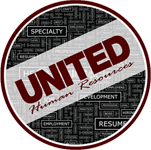JOB SEARCH TIPS 1.0
Cover Letter & Resume
If you’re like me, the Career Services office and your English classes made you spend way too long writing and refining your cover letter for job applications. Not to say it was a complete waste of time, but I’m going to tell you that the vast majority of recruiters do not even glance at your cover letter.
Furthermore, recruiters are going to decided yay or nay on your candidacy after the first 5 (five!) seconds of skimming your resume. If you’re still with me, that’s about 2-3 times as long as you’ve spent reading this. So how in the world are you going to stand out and highlight your most relevant skills and get that job? Here are a few pointers for that resume:
- DO include a personal, professional summary at the top of your resume, highlighting your most relevant strengths and skills for the position.
- DO keep your resume short and sweet. If you write paragraphs on every minute detail of your last position, I won’t read it – concisely give me the applicable skills, results, and accomplishments YOU can contribute.
- DO read through for typos! It probably won’t automatically exclude you in most cases, but if you’re touting your attention to detail skills, chances are they won’t believe you if there are simple errors.
- DON’T just submit the same resume to multiple different positions. Make sure you’re inserting relevant skills for each position specifically.
- DON’T focus on what you’ve done, but how that will promote results in what you WANT to do. This is especially important if you’re making a career change and don’t have specific applicable experience for where you want to go.
So what about the cover letter? Do you ditch it completely? As with most major decisions: it depends. Your resume should tell enough of a story of where you’ve been (through work, education, and other relevant experiences), and where you want to go (through your professional summary or objective statement). You can also take a little more liberty with your resume to show your personality, especially if you’re applying for a creative position. Just don’t go overboard and don’t include a picture (a picture can result in unconscious bias not working in your favor for multiple reasons).
Some instances where a cover letter CAN be helpful:
- If you’re applying for a position with a smaller company, they are more likely to take the time to read through it to gauge a culture fit; so use it to further expand on your personality.
- If you are making a career change, it can be helpful to draw out some of the “whys” of your decision, and convince them you really can do Sales even though your experience is all in Teaching.
- If you can, send your cover letter to the hiring manager; they’re more likely to read it than the recruiter.
- Instead of making a separate attachment, keep your cover letter short and put it right in the body of your email. Believe it or not, that one extra click to open an additional attachment probably won’t happen, but they’ll likely glance through an email you’ve typed up.
Ultimately, read through the job description, check out the company’s website, and try to incorporate in your resume reflections of why your skills and expertise are perfect for this position.

Leave a Reply
Want to join the discussion?Feel free to contribute!